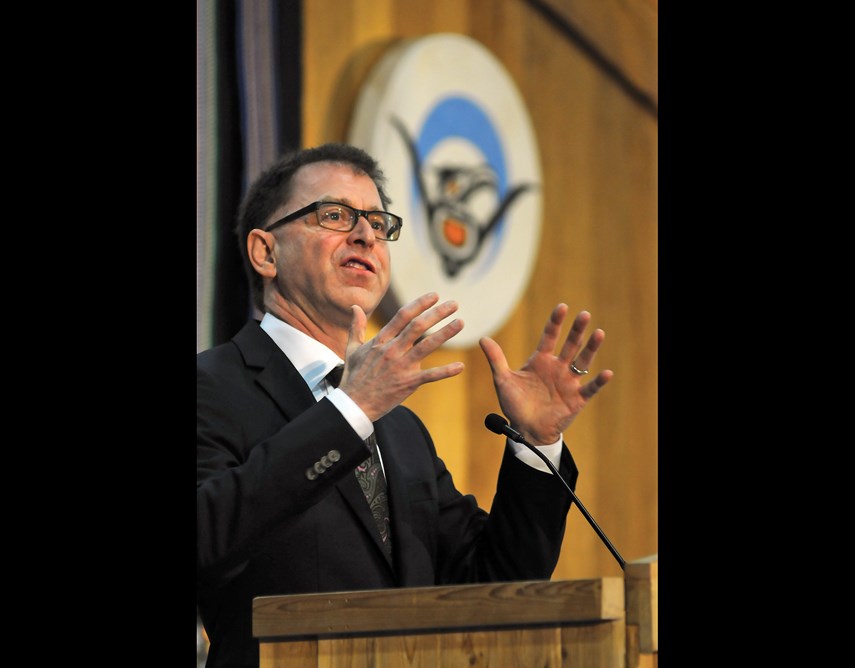Indigenous people facing the daunting road of cancer treatment should soon find fewer barriers on their path.
Health Minister Adrian Dix joined Indigenous health leaders at the Squamish Nation’s Joe Mathias Centre Tuesday to announce the launch of B.C.’s first Indigenous cancer strategy.
According to a study published earlier this year, Indigenous people in B.C. are less likely to be diagnosed with most types of cancer compared to the non-First Nations population, but their survival rates are lower.
The “road map” contains a number of action items intended to address practices in the system that haven’t been tailored to the unique needs Indigenous people may have when it comes to prevention, screening, treatment, post-treatment survivorship, as well as end-of-life care, all in a manner that are “culturally safe.”
That includes cancer prevention campaigns targeting things like HPV vaccinations, reduction of commercial tobacco use while respecting ceremonial tobacco use, and developing culturally appropriate awareness campaigns for colon, cervical and breast cancer screening availability including encouraging allowing individuals to be screened together for support. The plan also calls for the health system to make room for traditional healing practices in cancer care, cultural sensitivity education for front-line staff and better data collection to improve understanding of how cancer impacts Indigenous people.
“Bringing humility into a conversation can ensure that the system will look at us as human beings, not just as patients, to understand the journey that we’re on, to understand what health and wellness means to First Nations people,” said Joe Gallagher, CEO of the First Nations Health Authority. “There are biases in the system that it doesn’t even know it has at times.”
Dix said the program is meant to get beyond the paternalistic attitudes that have been prevalent in health care.
“It’s not about us deciding what is best but about us learning what is best, following what is best, implementing what is best with full involvement from First Nations people,” he said. “We also need to realize that the intergenerational trauma of residential schools is still impacting the lives of all Indigenous people. It has been hard for those people to trust government agencies and systems that do no respect them.”
The project has been in the works for years supported by the First National Health Authority, Métis Nation B.C., The B.C. Association of Aboriginal Friendship Centres and BC Cancer.
Ontario is the only other province to have set up such a program.



